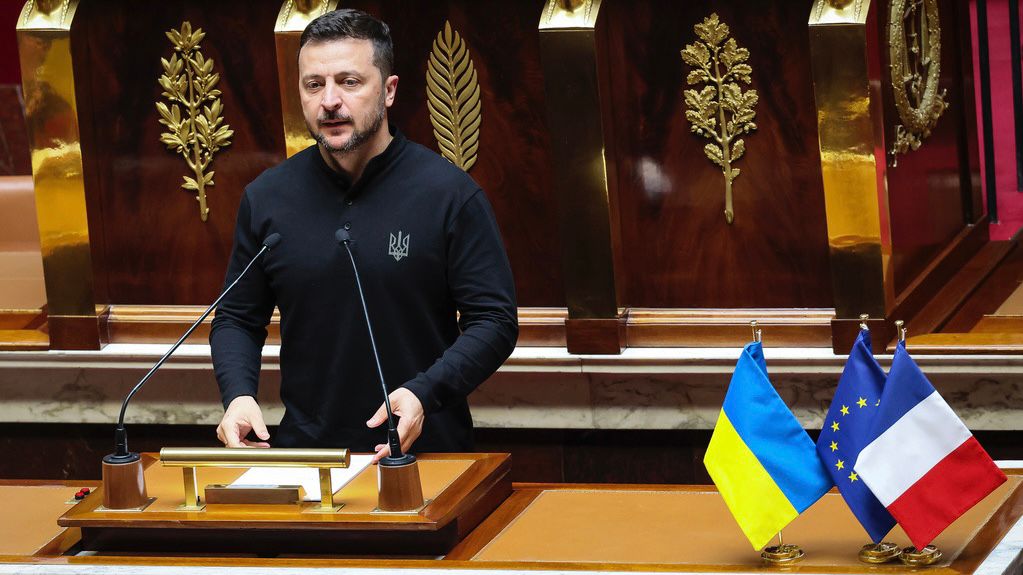A majority of Americans and Europeans support ending the war in Ukraine and favor a negotiated settlement through NATO to end the loss of life and casualties.
But when it comes to the war in Gaza, 42% of Americans believe Israel should agree to a lasting cease-fire compared to slight majorities in Europe, according to a new poll from the nonprofit Institute for Global Affairs.
For its report, the IGA surveyed 3,360 people in the United States, United Kingdom, Germany and France. It found that most respondents in all the surveyed countries think Europe should be primarily responsible for its own defense, but also want to preserve the NATO alliance that was formed following WWII for its 32 members to collectively defend one another if attacked.
“This transatlantic relationship is often conceived as essential to a rules-based international order,” the researchers noted in the report, adding that the U.S. and Western Europe “uphold themselves as beacons of liberal democracy.”
On the eve of next month’s annual NATO summit in Washington, D.C., the researchers said the strength of American-European relations is being tested by ethnonationalism, immigration, climate change, economic crises and Donald Trump’s potential return to the White House. The former president often complains that NATO member countries aren’t paying enough to guarantee their defense.
About three times as many Europeans as Americans prefer a neutral relationship with the United States to one where the U.S. is their primary defender. Just 6% of European respondents saw the U.S. as very reliable for guaranteeing their security in the next ten years compared with almost a quarter of Americans.
More Europeans and Americans would like the U.S. military presence in Europe to stay the same as it is than to decrease or increase troops.
The survey saw sharper differences in European and U.S. attitudes toward China, with Americans much more likely to view China very unfavorably and a majority supporting preparations for a new Cold War with the world’s second largest economy because of a perceived threat to U.S. security.
There were significant differences between generations about geopolitics, with younger people more likely to see China favorably. About one in three adults under age 45 think democracy is “definitely” the best type of government compared with half of people aged 45 and older.
While older respondents were most concerned about immigration, populism and political elitism, adults under the age of 30 were twice as likely to be worried about economic policies.



